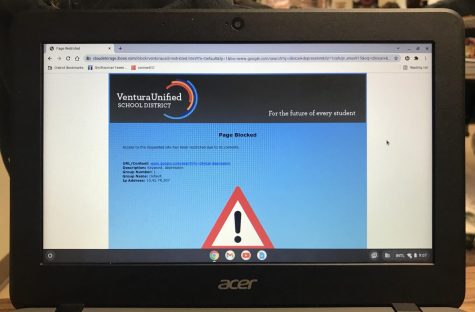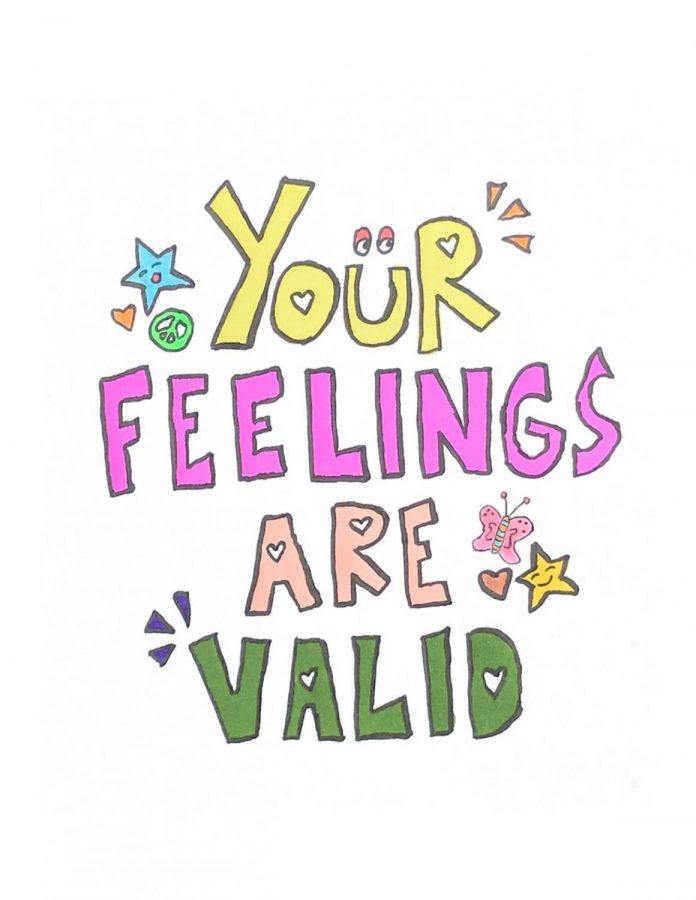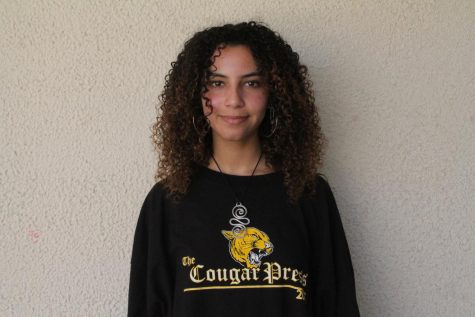Opinion: Why can’t I search that?
Nobody should feel embarrassed or ashamed for experiencing normal emotions. Your feelings are always valid. Drawing by: Belen Hibbler
December 14, 2021
Students at VHS now all have chromebooks permitted by the school, but they seem to come with a cost. What sorts of things is the filter restricting?
Say you’re in class, chatting with friends and suddenly your brain has sparked a memory from way back. You remember a hilarious viral video and you just need to show your friends. So, naturally, you use the technology that is likely right in front of you, the chromebook. You and your friends are itching to watch this comical video but your spirits are crushed when all that comes up in response to your search is “Page Blocked.”
It’s understandable for something as small as a silly video to be blocked. After all, students are expected to do school-related work on the computers provided by the district. But some of the things we are shunned from are things that you would think acceptable for a school chromebook. How is the good and bad determined?
Prime examples of questionable judgement regarding blocked searches are the terms, “clinical depression” and “anxiety disorder.” Both terms are restricted even if you only type “depression” or “anxiety”. If you are looking for a loophole, you can spell those words wrong and it will come up, but why should we have to filter the search?
“It limits important information,” said junior Jane Armstrong. The actions of blocking games or inappropriate websites are justified, but when you’re restricting students from possibly learning about something important and harmless, it becomes a problem.
Students of many different backgrounds struggle with mental disorders, such as anxiety and depression, it isn’t something that should be perceived as shameful or inappropriate. With that being said, when you attempt to research these terms and it isn’t permitted, it comes across as if there’s something wrong with wanting to learn about these disorders or even wondering if you’re struggling with one of these disorders.

When I noticed that the word depression was blocked, I wasn’t searching for any personal reasons. It was for a school project, which is ironic in itself because the information was needed for school while it was also being blocked by school. But some students might be searching for personal reasons, you never know. Since that is a possibility, restricting informative terms like this could perhaps be harmful or confusing for students that are less enlightened on mental health topics.
“I have not noticed it until now because I have not searched up the words depression and anxiety… it confuses me,” said junior Charlie Willis.
“For the future of every student.” This quote is written on the blocked page that pops up after a restricted term is searched. Are the search restrictions helping students? Blocking meaningful words does not seem like the best way to ensure us a good future.
This all seems pretty controversial for no good reason. Students don’t need to be sheltered from hearing or knowing about the meaning of depression or anxiety. I feel that that’s an obvious conclusion that many could agree on. “I think that the restrictions on certain words that aren’t violent or inappropriate are very stupid and should be removed from the chromebook.” said Willis.
Whatever the reasoning is, it doesn’t quite justify it because society should be getting more comfortable with these topics that have previously been deemed sensitive. Today, we live in a society that is already very developed. People are used to uncomfortable or non-traditional ideas, so for the school to have these sorts of restrictions seems outdated. We should always be learning, growing and evolving as a community, we don’t want to go backward.









![Lindsay Guzik, new assistant principal said, "I am settling in [at VHS] pretty well. I know a lot of the students, so that makes it a little bit easier coming from Cabrillo, and it's been nice to see them all grown up." Photo by: Abraham Kassa](https://thecougarpress.org/wp-content/uploads/2025/09/IMG_9728-300x200.jpg)